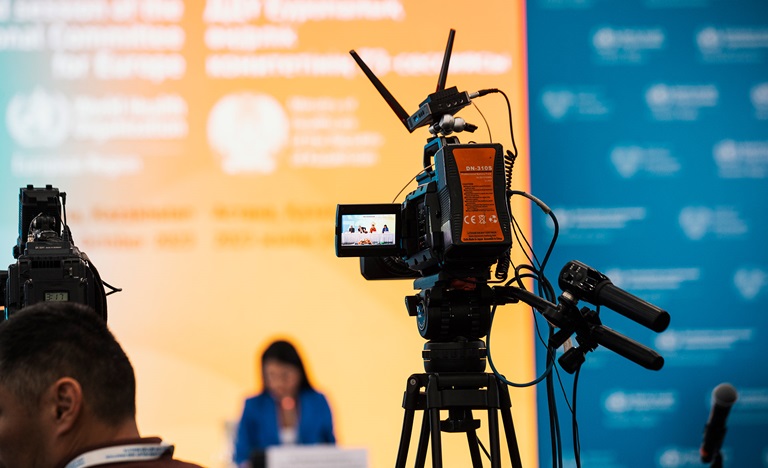
Newsroom
Media Contacts
![]()
WHO/Europe Press Office
Email: eupress@who.int
Latest news
All →Improving public health capacities at borders and fostering cross-border collaboration in central Asia and southern Caucasus
The central Asian and southern Caucasus regions are better prepared to assess and improve public health capacities at points of entry. This is following a 5-day training workshop conducted by WHO/Europe for those working at or with points of entry, in line with the International Health Regulations (IHR) (2005).
Points of entry, including airports, seaports and ground crossings, are on the front line in helping to prevent, detect and respond to public health events arising via international travel and transport. During the COVID-19 pandemic, over two thirds of countries restricted international traffic by imposing travel-related health measures and closing points of entry.
WHO designed the “Assessment tool for core capacity requirements at designated airports, ports and ground crossings” to support countries in monitoring and evaluating their IHR capacities at their most important points of entry and exit.
Dr Aizhan Yesmagambetova, Vice-Minister of Health of Kazakhstan, said, “This training workshop is timely, especially now that international travel and trade have resumed. Countries should make strong efforts to build public health capacity, including at points of entry.”
Designated points of entry
Participants from countries across central Asia and the southern Caucasus reviewed the IHR, including requirements for capacities that must always be in place at designated points of entry, and specific measures to respond to a public health emergency of international concern (PHEIC).
Participants also practised mechanisms for collaboration and communication among national and subnational health authorities. They gained practical experience on these topics through site visits at the Aktau International Airport and the Aktau Seaport.
Under the IHR, States Parties should designate major international points of entry based on the level of risk and the volume of traffic, among other criteria. These designations help to prioritize investments in developing and maintaining core public health capacities. In 2018, 583 points of entry were designated across the WHO European Region; so far in 2023, 670 have been designated.
Managing public health events
The workshop assisted the 40 participants in strengthening institutional capacities for preparedness, readiness and response in order to manage public health events – including the spread of infectious diseases – related to population, animal and cargo movements across international borders. It focused on:
- standardizing participants’ understanding of how to use the assessment tool;
- facilitating independent assessments on a risk-based approach;
- supporting implementation of evidence-informed, risk-based public health decisions and policies to minimize public health risks related to population movements across borders; and
- fostering intersectoral and cross-border collaboration.
Dr Skender Syla, WHO Representative in Kazakhstan, stated, “In inviting 6 countries together to train their public health experts working on points of entry, we further exchange experience and create a harmonized body of practice among professionals who will undoubtedly champion the WHO standards in assessing and strengthening points of entry according to the IHR requirements.”
The training was organized by WHO/Europe, WHO headquarters and the WHO Country Office in Kazakhstan, in collaboration with the Kazakh ministries of health, finance and the interior, and the Kazakh transport authorities of the Aktau Seaport and the Aktau International Airport. The workshop was conducted in the city of Aktau, where the Seaport and Airport opened their doors for site visits.
The workshop was supported by the European Union’s Healthy Gateways joint action initiative, the International Civil Aviation Organization, and the International Organization for Migration.




